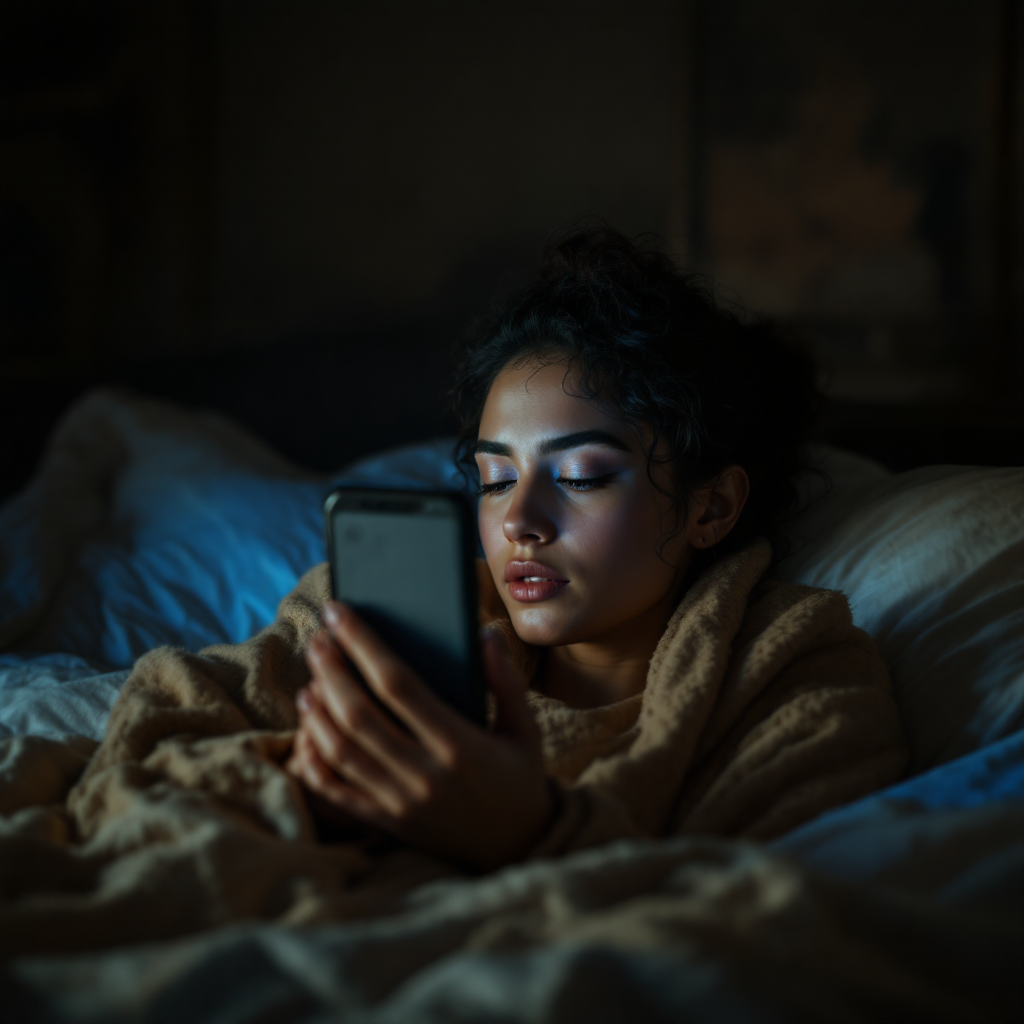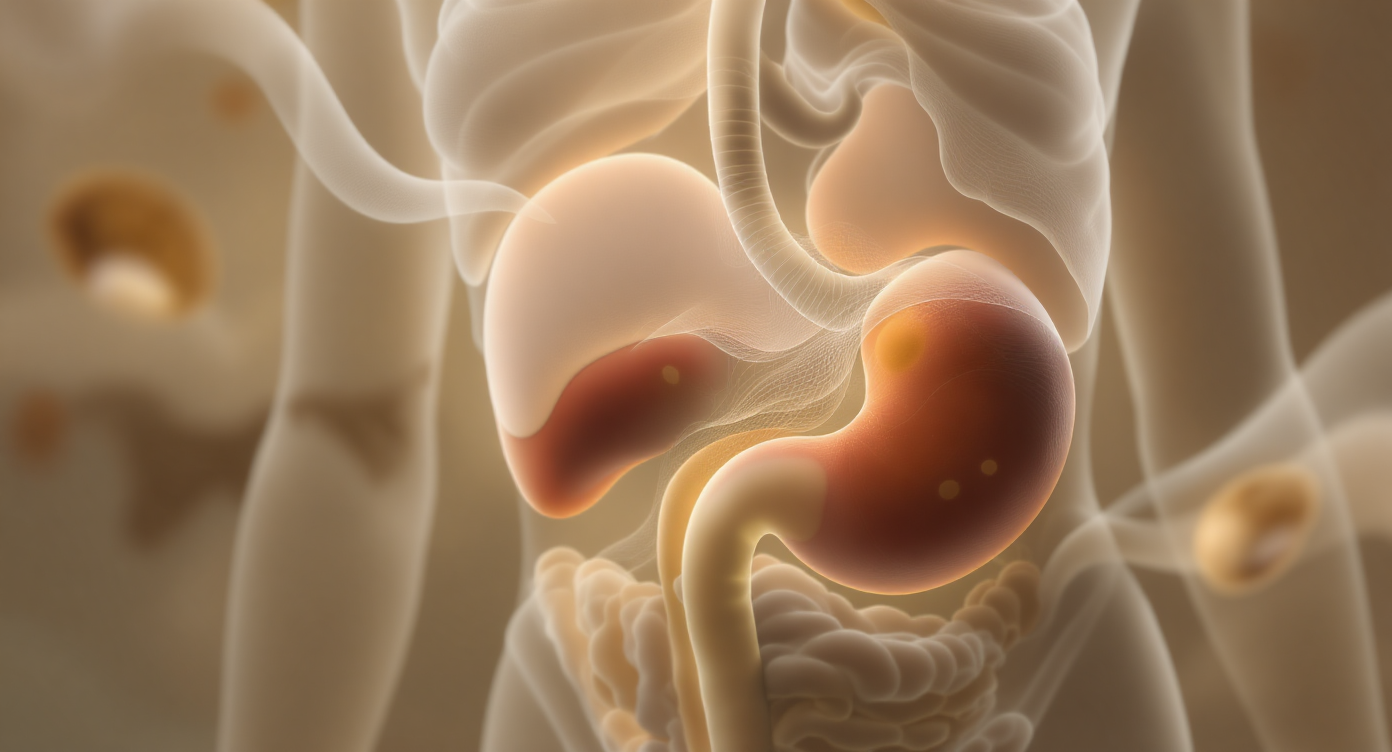The Circadian Rhythm: Your Body's Internal Clock
Circadian Rhythm?
Your body naturally follows a 24-hour cycle known as the circadian rhythm. This internal clock regulates when you feel alert or sleepy by controlling hormone production, body temperature, and other biological processes.
How it works
When functioning properly, your circadian rhythm releases melatonin as darkness falls, preparing your body for sleep. In the morning, cortisol levels rise, promoting wakefulness and energy.
When Disturbed
Even small disruptions to this cycle—like staying up late on weekends or exposure to bright light before bed—can throw your entire sleep-wake system off balance, leaving you feeling exhausted yet unable to rest.

Blue Light: The Sleep Disruptor
78%
The artificial blue light emitted by phones, computers, and TVs is perhaps the most common yet underestimated sleep disruptor in modern life. This high-energy light wavelength tricks your brain into thinking it's still daytime.
90%
According to a Harvard Medical School study, blue light exposure suppresses melatonin production for twice as long as other light types and shifts your circadian rhythm by up to three hours—more than twice the effect of other light sources.
90%
Even brief exposure to blue light within two hours of bedtime can delay REM sleep onset by up to 30 minutes, reducing overall sleep quality and making you feel less rested the next day.
https://www.health.harvard.edu/staying-healthy/blue-light-has-a-dark-side
Sleep and Chronobiology Laboratory
Research from the Sleep and Chronobiology Laboratory at the University of Pennsylvania shows that chronic stress activates your sympathetic nervous system, keeping your body in "fight-or-flight" mode even when you're physically tired.
The "Wired But Tired" Phenomenon
90%
Have you ever felt exhausted but couldn't fall asleep? This frustrating state—being simultaneously fatigued and alert—has scientific roots in your body's stress response system.
90%
When this happens, your adrenal glands continue producing stress hormones like cortisol and adrenaline, preventing your brain from transitioning into sleep mode despite physical fatigue. The more you worry about not sleeping, the more these hormones surge, creating a frustrating cycle of sleeplessness.
90%
This misalignment between mental alertness and physical tiredness often indicates your natural sleep rhythm is out of sync with your current lifestyle or schedule.
https://www.med.upenn.edu/csi/
Caffeine blocks adenosine receptors in your brain, preventing the natural buildup of this sleep-promoting compound. What many don't realize is that caffeine has a half-life of 5-6 hours in most adults—and up to 12 hours in sensitive individuals or those with certain genetic variations.
This means that cup of coffee at 2 PM could still be affecting your sleep at midnight, even if you don't feel "wired." Research from the Sleep Disorders & Research Center shows that caffeine consumed 6 hours before bedtime reduced total sleep time by 1 hour, even when participants didn't perceive difficulty falling asleep.
Sleep Consistency: Why Your Weekend Sleep-In Is Backfiring
Your body craves consistency. Maintaining the same sleep and wake times within 30 minutes every day—even on weekends—helps optimize your natural sleep-wake cycle for better quality rest and daytime energy. This means not just when you go to bed, but also when you wake up, regardless of whether it's a workday or a leisure day.

The "Wired But Tired" Phenomenon
90%
The cumulative effect of repeatedly shifting your sleep schedule can be more detrimental than an occasional late night. It creates a state of perpetual internal desynchronization, making it harder for your body to predict and prepare for sleep or wakefulness, perpetuating a cycle of fatigue and low energy.
90%
Each hour of social jet lag increases your risk of sleep problems by 11% and is linked to poorer health outcomes, including an increased risk for heart disease, diabetes, and obesity. This chronic inconsistency disrupts crucial metabolic processes, impairs immune function, and negatively impacts your gut microbiome, leading to accumulated systemic stress.
90%
Maintaining a regular weekday sleep schedule but altering it significantly on weekends leads to "social jet lag." This misalignment between your biological clock and social schedule can make Monday mornings feel like you've crossed time zones, leaving you groggy and affecting your productivity and mood.
https://pmc.ncbi.nlm.nih.gov/articles/PMC4667156/
Researchers at the University of California, Berkeley found that insufficient sleep amplifies anxiety levels by up to 30% by reducing activity in the prefrontal cortex (your brain's rational center) while increasing activity in the amygdala (your brain's fear center).
This creates a dangerous cycle: stress disrupts sleep, and poor sleep increases stress sensitivity, making both problems progressively worse without intervention.

